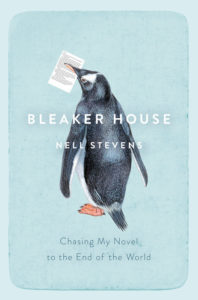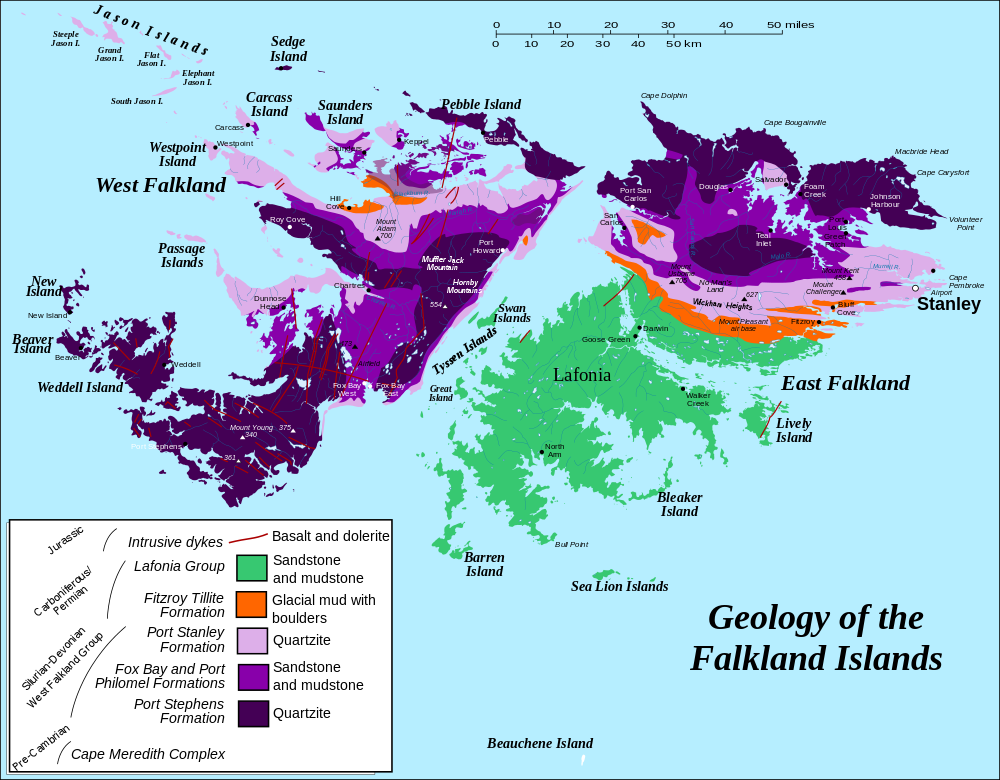 An extreme choice to pursue a writer’s dream (Falkland Islands, a few years ago): What if you had A Room of Your Own? If you could go anywhere in the world for up to three months to write the novel of your dreams? Where would you go?
An extreme choice to pursue a writer’s dream (Falkland Islands, a few years ago): What if you had A Room of Your Own? If you could go anywhere in the world for up to three months to write the novel of your dreams? Where would you go?
An enviable position for aspiring writers. A once-in-a-lifetime opportunity Nell Stevens answered when she was twenty-seven, a Global Fellow from Oxford, England completing her MFA at Boston University’s creative writing program. How can you not be intrigued about Stevens when her choice was the “bottom of the world” – the Falkland Islands, in the wintertime?
The Falklands are an archipelago in the southern hemisphere, en route to the Antarctic Peninsula, where seasons are reversed from ours. So the author spent her summer reawakening in a land “stranger, wilder, colder, and bleaker” than she could imagine. In your wildest sunshiny dreams, the Falkland Islands, in the dead of winter when the sun rarely shines, would be a strange, wild idea.

Falkland Islands
Via Wikimedia Commons, by User:Sting [CC-BY-SA-3.0]
Before you get the wrong impression that Bleaker House is a bleak, dreary read, better set the record straight. Key to characterizing it, alluded to above, is that’s its darn funny. Smiling, chuckling, laugh-out loud funny.
Jacketed with an adorable penguin on the grayish-front cover and accolades on the back saying it’s “fun to read” and “charming,” Stevens’ debut is clever and full of wit. Though there’s nothing humorous about her anxieties, self-effacement, and feelings of worthlessness if she doesn’t produce a novel with characters that feel real by the time she hits thirty. Until now, her writing has been judged dry and pointless, rejected.
Stringent airline restrictions led to paring down essentials to the barest minimum, a problem that plagues. Yet the determined author made sure her hefty copy of Bleak House, from which she quotes, accompanied her (along with her Kindle), prioritizing intellectual substance over food and ensuring a nagging reminder of the multitude of vivid characters Dickens created versus her vexing work-in-progress. Which makes this a serious, intimate look at the struggles of self-actualization and becoming an artist packaged in an inventive, whimsical way.
Stevens goes far, geographically and artistically. Bleaker House is billed as “a work of memoir and fiction.” A memoir broken up with fictional writing pieces in the form of spreadsheets, short-stories, and the obsessed over novel-in-development. An unusual, experimental journey, reflected in an unusual, experimental narrative.
Creative formats serve multiple purposes. First, to offer insight into the motivation behind the words stated in her internship application pitching the Falklands. For instance, in a spreadsheet column she wrote: “There has never been a literary novel set there.” Alongside it, another column in which she candidly reveals: “If I can teach myself the art of loneliness, then perhaps the art of writing will come more easily to me.”
Elsewhere we learn she chose an empty place assuming “zero distractions” to achieve “effortless concentration.” Contrary to what you might think, Stevens left behind an active social life (albeit a dissatisfying love life) and a happy family life (absent the drama that can inspire compelling novels). So her thinking went along these lines: if she forfeits all distractions, her novel will burst forth from agonizing blank pages, animated by a dramatic landscape.
Stevens pokes fun of herself to prove her writing is flawed. She doesn’t just tell us she shows us, exaggerating the point eccentrically. Her short-stories, “The Personal Assistant” and “Misadventure,” are wacky, fall flat, and verge crudely, an attempt to be bold and critical of herself in an outlandish, condescending way. To her dismay, this enterprise continues: her novel is slow, slow going and corny. Since it’s set in the Falklands, she remixes the absurdity of what’s she’s finding, but there’s a gem of poignancy in her solitary character, Ollie, who parallels her feelings of “ridiculousness and doubt, loneliness, hardship.”
Stevens is a student well-versed in planning and organizing, someone who counts days, words, calories, and the only luxury she’s brought: chocolates. She’s also someone drawn to challenging herself, such as the time she went to Lebanon to teach English in a refugee camp and war broke out. She seeks to put herself in life-changing positions to make her life more interesting for writing and to grow as a person.
The Falklands is a test. This syllabus is aptly dubbed: “isolation taster course.” Grade this student A+ for identifying what must be one of the most isolating places in the world in the winter, marked by a “guestless guest house” on an island archipelago totaling around only 2,000 to 3,000 residents. This student doesn’t cut corners for she could have at least selected Stanley, the capital of the Falklands (though she stayed a week to get acclimated and conduct research in the government’s archives.) Instead, she chose Bleaker Island, population two, plus a housekeeper who thinks the printer is the Internet – a “disconnected life.”
The Falklands are located in the South Atlantic Ocean east of Argentina. In 1982, Argentina invaded the islands. Britain won the war but the aftermath is still very much felt, which the author uncomfortably discovered when she arrived in Stanley, palpably suspicious of strangers (and writers, presumably journalists came in droves to report on the war).
Just like her fiction, her journey “unfolds in increasing degrees of strangeness” as she finds herself in a “strange landscape” that’s “not so much a different country as a different planet.” Stevens wasn’t prepared for all the discomfort.
Remember how snail-like the Internet was when it first emerged? She needs to buy scratch cards with magical codes to access it, if you’re lucky enough to find a magical card in the first place. Food is also scarce, expensive, and “fresh” produce and fruit precious. The news is doled out on DVDs, a week at a time. Sure there’s radio, but mostly there’s indomitable weather, more like forces of nature, and relentless solitude, except for a few lovely days with the lovely owners of the guest house she’s staying in, the one without the guests.
At one point, the author wonders: “How to fathom the bleakness of Bleaker?” She decides it’s bleaker than anything she’s seen before.
This memoir-embedded-with fiction is sprinkled with tidbits from the long-time director of her program, novelist Leslie Epstein. The author tries her hardest to follow his “tips on writing and life,” but when did writing and life go as planned?
“Passionately hungry,” Nell Stevens couldn’t have predicted the fruits of her labors. What she finds is more precious than the single potato she cherished.
Lorraine